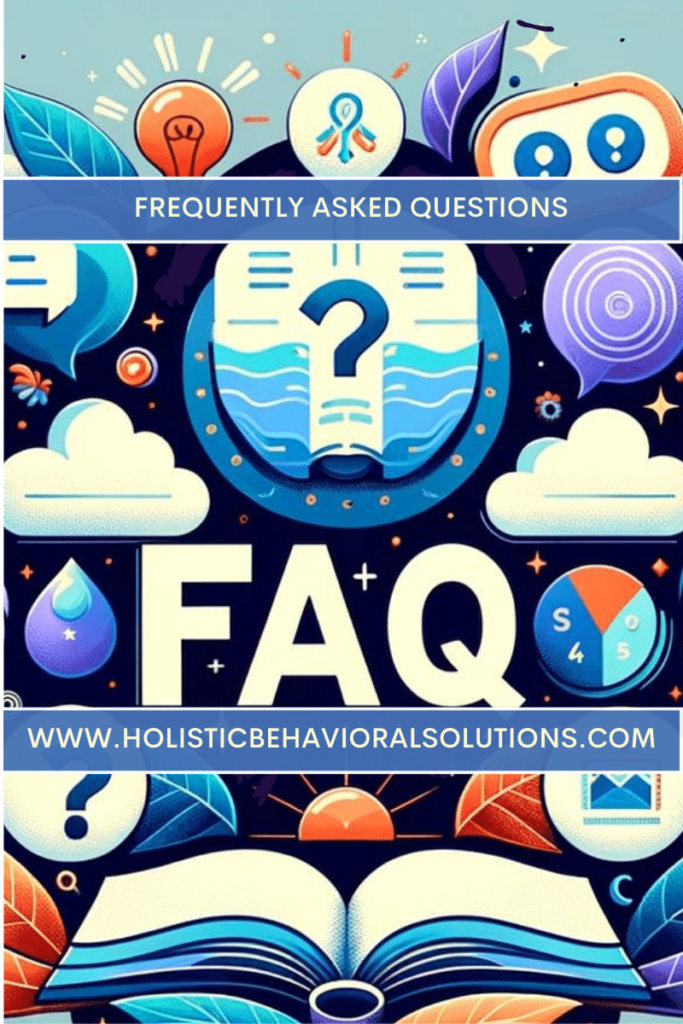
1. Therapy FAQ: What exactly is Cognitive Behavioral Therapy (CBT)? CBT is a form of psychotherapy that focuses on identifying and changing negative or harmful thought patterns and behaviors. It’s based on the concept that our thoughts, feelings, and behaviors are interconnected, and by altering negative thoughts and behaviors, we can change how we feel.
2. Therapy FAQ: How long does CBT typically last? CBT is known for being a short-term therapy, with many treatment plans ranging from 5 to 20 sessions. However, the duration can vary depending on the individual’s specific issues and progress.
3. Therapy FAQ: Is CBT only effective for certain mental health conditions? CBT is a versatile therapy that has been proven effective for a range of mental health conditions, including anxiety, depression, phobias, PTSD, and more. It’s also useful for dealing with life stressors like relationship issues and work-related stress.
4. Therapy FAQ: Do I have to do homework in CBT? Yes, homework is a key component of CBT. It may include practicing skills learned during therapy sessions, keeping thought diaries, or engaging in exposure activities. This helps reinforce learning and accelerates progress.
5. Therapy FAQ: Is CBT a ‘one size fits all’ therapy? No, CBT is highly adaptable and is tailored to each individual’s specific needs and goals. Your therapist will work with you to develop a personalized treatment plan.
6. Therapy FAQ: Can CBT be done without a therapist? While self-help CBT resources exist, working with a trained therapist is highly recommended for the most effective treatment. Therapists can provide personalized guidance, support, and adjustments to the therapy as needed.
7. Therapy FAQ: How is CBT different from other types of therapy? CBT is more structured, focused on the present, and goal-oriented compared to some other forms of therapy. It involves active collaboration between the therapist and the client and places a strong emphasis on practical skills for dealing with specific problems.
8. Therapy FAQ: What if I don’t see improvements with CBT? It’s important to communicate openly with your therapist about your progress. Therapy can sometimes need adjustments or a different approach might be more effective. Mental health is complex, and finding the right therapy can be a process.
9. Therapy FAQ: Can CBT help with issues not related to mental health, like chronic pain or insomnia? Yes, CBT has been adapted to help with a variety of issues beyond traditional mental health conditions, including chronic pain, sleep disturbances, and lifestyle management for chronic illnesses.
10. Therapy FAQ: Is CBT difficult? CBT can be challenging, as it requires individuals to confront and change deeply ingrained patterns of thinking and behavior. However, it’s also highly empowering and rewarding, as it provides individuals with lasting tools to manage their mental health.
Remember, your therapist is there to support you through the process, and it’s okay to go at your own pace. If you have any other questions or concerns, don’t hesitate to bring them up with your assigned mental health professional. These questions are specifically for CBT but many of the answers are also consistent with DBT. The most important answer surrounds the individual and custom approach that therapy and mental health counseling take. There is no one like you in this world and if your therapist takes a humanistic approach, the therapeutic relationship will be like no other.
Therapy FAQ and The Holistic Store
We know you have questions, we have answers. Please visit the Holistic Store for the highest quality supplements available today. While we are thinking that through, boost your connection from the inside out with our wellness supplements and supplies. Check out our store for products that help you feel your best, making it easier to open up and connect on a deeper level.